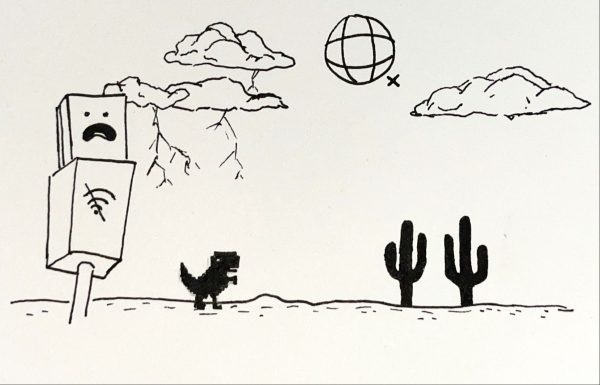Strength: A valuable piece of our culture?
September 13, 2005
America has strength on the brain. Between supercharged auto engines, superhero movies and steroid scandals in professional sports, it seems that nearly everyone is chasing a fantasy of more power.
Those trends make sense when one considers the fact that strength is a large part of our national identity.
For many Americans, the unmatched prowess of our armed forces is a source of great pride; the military’s new slogan is, “Strength for now, strength for later.” And each year at the State of the Union address, the president declares, “The state of the union is strong.”
At an individual level, one can point to the sudden ubiquity of yellow “Live Strong” fashion bracelets on the wrists of many across campus.
It might sound pretty odd if the president instead declared the state of the union to be “kind,” or “smart” or “thoughtful.” In fact, it might sound kind of … wimpy.
And maybe that’s a problem. Strength is a virtue, but is it necessary for it to be our culture’s chief one?
Many people would argue that those other three attributes are just as desirable and necessary. Yet they seem to take a back seat to strength in importance.
It seems odd that people use the phrase “strength of character” to describe a courageous or dutiful person, or “spiritual strength” when they mean that someone is pious; it’s as if we have no other word to use as a metaphor for value or achievement.
I’ve been on both sides of the strength coin.
Throughout my life I have been involved in sports that emphasized strength and power – boxing, wrestling, karate. But shortly after my 21st birthday, I contracted mono. I didn’t move for three months, and it took me more than a year to recover.
Where I had once been able to run for miles on a whim or hoist hundreds of pounds with no problem, lifting a milk jug during that time reduced me to a trembling mass.
The year after that, the pendulum continued to swing to the “unfit” side; I worked two jobs and didn’t exercise at all.
Having lived both extremes, I can testify to the fact that neither one is as healthy as achieving a balance somewhere in between.
Maybe America needs a bit more balance, too. Might we become a better country if we spent less on bombers and more on taking care of the poor and the sick, or on infrastructure and emergency planning?
If the last few years have shown us anything, it’s that for all our vaunted strength, we can still be laid low by the forces of nature, or by fanatics armed with simple tools and evil intent.
With intelligence, imagination and responsible leaders, we can prevent most disasters of that scale, but we may never be strong enough to prevent them all. Even a diamond will break if you hit it from a certain angle.
Hard times, whether they occur on an individual or a societal level, can force us to see ourselves in a different light. Sometimes they can even help us discover gifts that we didn’t know we had; talents we had ignored in the pursuit for more strength.
America remains the world’s lone superpower, but geopolitical forces might someday strip us of that title.
If such a thing ever happens, we would do well to have something more meaningful to contribute to the global community than military force.
It’s possible to ascribe too much meaning to a few slogans, but we now live in a catchphrase, bumper-sticker world; such is the result of letting ad men and marketers shape the culture.
It’s unclear what ought to replace strength at the top of our values pyramid; that’s a job for artists and scholars and holy men.
Many people may be hungry for something deeper. “Live Strong” is a good slogan, but slogans are rarely enough to live by.
Columns reflect the opinion of the author and not necessarily that of the Northern Star staff.











